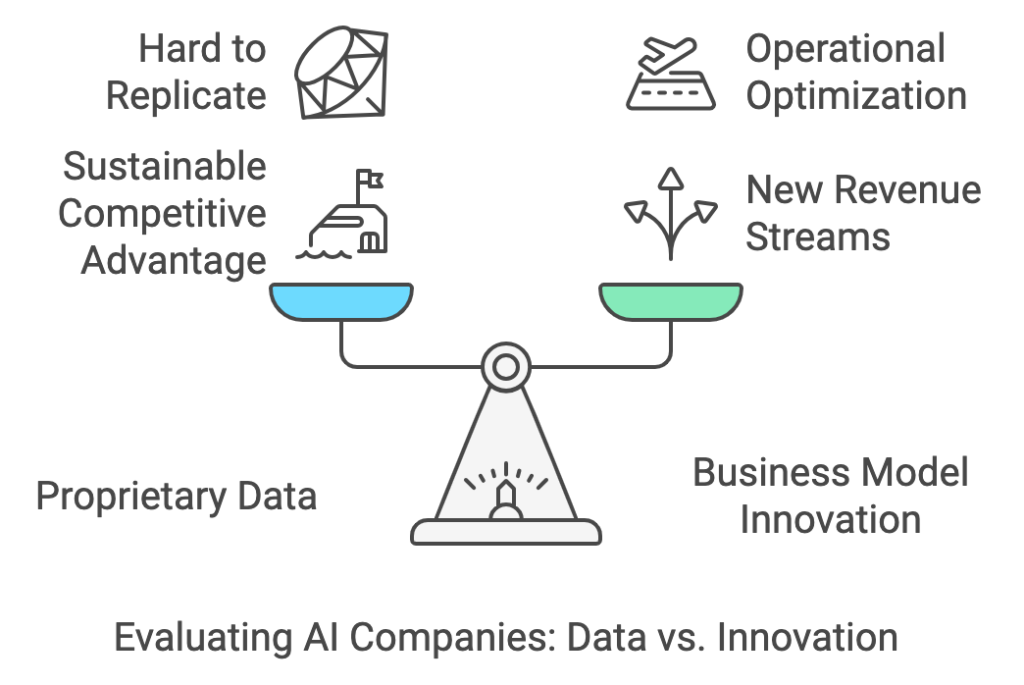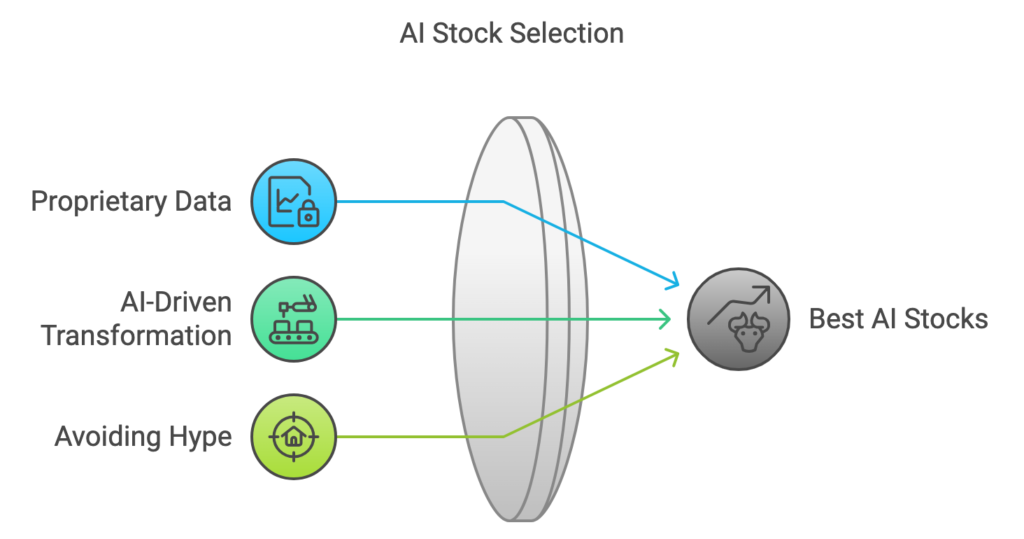Artificial Intelligence (AI) is transforming industries, and many investors are wondering which AI stocks are worth their money. While companies like Nvidia seem to be the No. 1 choice due to their dominance in AI hardware, my opinion is that the real long-term winners may emerge from the application layer of AI, where AI technologies are used to solve industry-specific problems. Here’s a quick guide to help you pick valuable AI stocks.
Understanding AI Investment Layers
There are two major types of AI companies:
- Infrastructure companies: These provide the foundational hardware and tools for AI development. Nvidia, with its GPUs, is a good example.
- Application-layer companies: These companies use AI to innovate within specific industries like healthcare, finance, or automotive.
Historically, infrastructure companies like Cisco (in the early internet era) performed well in the short term but were later overtaken by application-layer giants like Google, Meta, and Amazon. The same pattern may repeat with AI. Application-layer companies could become the biggest winners.
How to Pick AI Stocks: Focus on Data and Business Models
When evaluating AI companies, we want to think about two critical factors:
- Proprietary Data:
Data is the fuel for AI. Companies with access to unique, high-quality data are likely to have a sustainable competitive advantage. For instance, Tesla collects millions of miles of driving data every day, which is crucial for advancing their autonomous driving systems. Similarly, companies like Intuit, with its tax data from millions of users, could dominate AI in finance.A company that relies on open-source algorithms and public data is much easier to replicate. But if a company controls valuable proprietary data, it is harder for competitors to catch up. - Business Model Innovation:
AI can transform a company’s business model, enabling them to either optimize existing operations or create entirely new revenue streams. For example, Deere & Co. (a manufacturer of farming equipment) is not only building AI-driven tractors but also developing new software products for automated farming—a huge potential market.

Common Pitfalls: Be Wary of Overhyped Companies
While AI holds enormous potential, many companies in this space are prone to overhype. It’s easy to be lured into investing in companies that promise big AI breakthroughs but lack strong foundations in either proprietary data or innovative business models. Companies like Upstart, which use publicly available data for AI credit scoring, may face significant competition from established financial players with better access to data and customers.
Look for Disruptive Innovators
Some companies are pioneers in disruptive innovation—creating entirely new AI-powered industries. One such example is OpenAI, whose language model, ChatGPT, has revolutionized natural language processing. Investing in companies like these is risky but can lead to substantial rewards if they manage to scale and dominate new markets.
However, early-stage disruptors can be tricky investments due to high uncertainty. It’s important to balance risk by investing in more mature companies that use AI to expand their core business, such as Adobe, which has integrated AI into its existing products to improve functionality and boost revenue.
Conclusion
To identify the best AI stocks, focus on companies that:
- Own valuable, proprietary data that no other company can easily access.
- Use AI to transform their business models, either by optimizing operations or by creating entirely new revenue streams.
- Avoid companies that rely on hype without solid foundations in data or innovative business practices.
By applying these principles, you can increase your chances of investing in AI companies that will succeed in the long term. The AI space is still young, and there will be many opportunities to invest in emerging players as the technology evolves.
